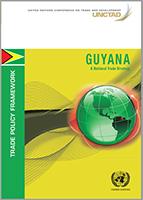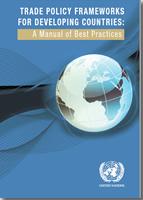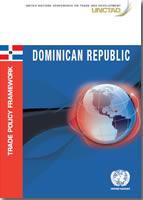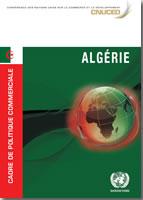International trade is an engine for economic growth that can contribute to promoting sustainable development. It can be a powerful force for creating jobs, fostering efficient use of resources, stimulating entrepreneurship and ultimately lifting people out of poverty.
Although trade can contribute to development, many developing countries face challenges to make sure trade contributes to development. This is because they have limited capacity to analyze the relationship between trade, productive capacity and employment, assess policy options and formulate and implement adequate national trade policy frameworks. This hampers their ability to make full use of the transformative power of trade for development.
The aim of UNCTAD's work in this area is to contribute to the (re)formulation and implementation of national trade policy regimes according a country's own development priorities and needs. Research and training activities provide the tools to policymakers in developing countries and transition economies that enable them to set their own priorities, make impact assessments of different policy options and devise the best actions, including at the sectoral level.
News
Trade policy framework reviews
The Reviews focus on identifying key sectors for diversification with the potential to bring higher economic value, setting the right trade policies to back up those development priorities and establishing a trade policy framework to ensure effective implementation of such strategies.
The aim is for Trade Policy Framework Reviews to contribute to the (re)formulation and implementation of national trade policy regimes according to a country’s own needs.
The Reviews, via activities and workshops, provide the tools to policymakers in developing countries and transition economies that enable them to set their own priorities, make impact assessments of different policy options and devise the best actions, including at the sectoral level.
Documents and publications
10 Mar 2022
Key statistics and trends in trade policy 2021
The Regional Comprehensive Economic Partnership Tariff Concessions
UNCTAD/DITC/TAB/2022/2
Events and meetings
10 February 2025
12th Trade Policy Dialogue: Trade Preferences Outlook 2024, Part II
9 February 2024
11th Trade Policy Dialogue: Resilient and sustainable supply chains
2 February 2024
10th Trade Policy Dialogue: Key issues on the trade and environment nexus; Trade measures in nationally determined contributions and trade in non-plastic material substitutes
31 January 2024
9th Trade Policy Dialogue: What role for special and differential treatment on sanitary and phytosanitary measures and technical barriers to trade?
18 – 19 December 2023
Stakeholder workshop on trade remedies and safeguards application in Mozambique
27 – 31 March 2023








